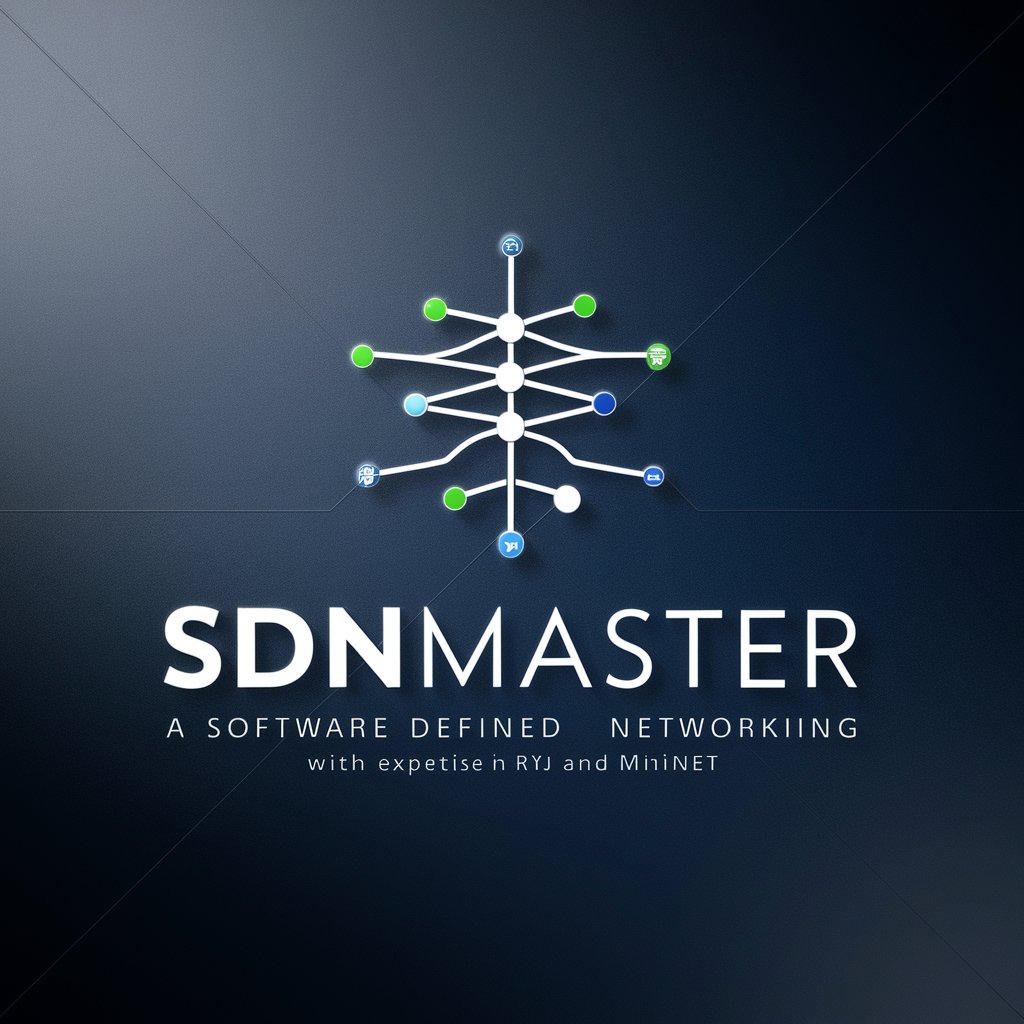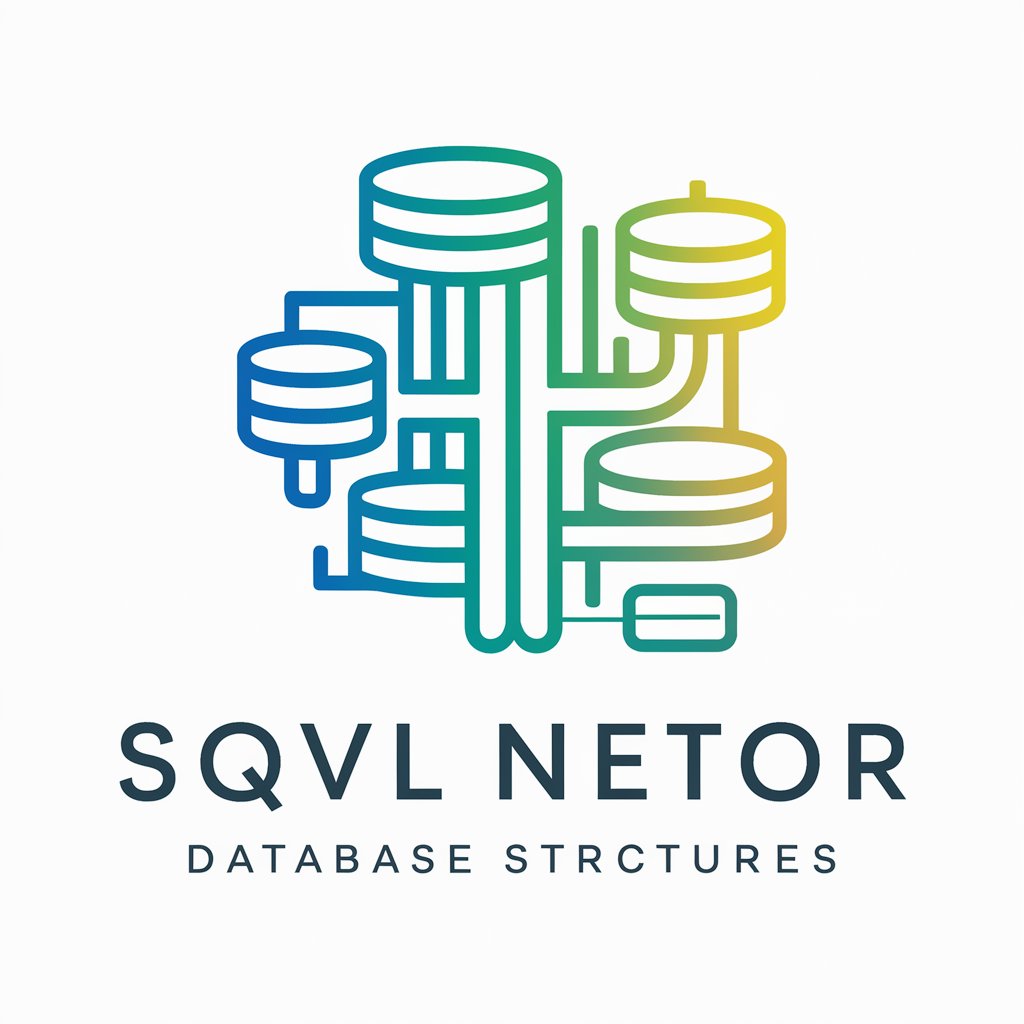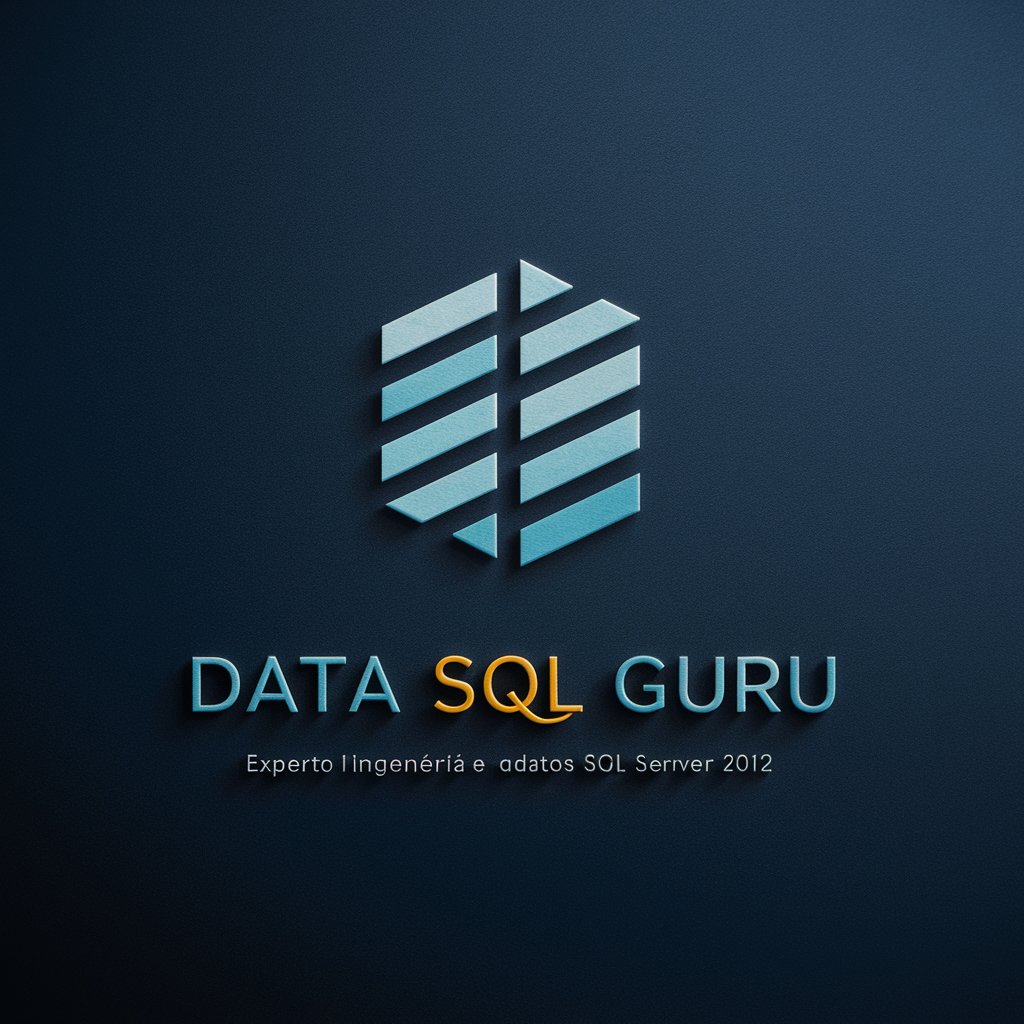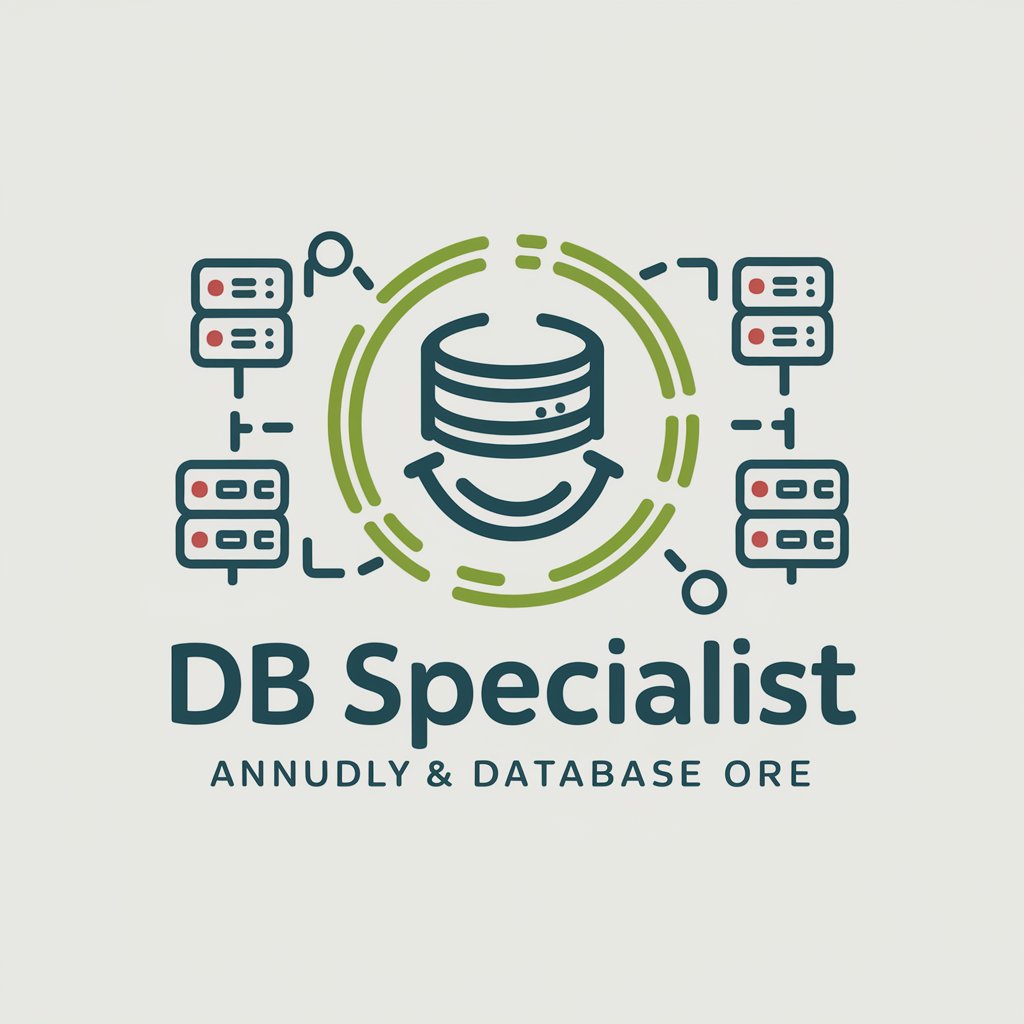
DB Query Specialist - SQL and NoSQL Query Help

Welcome! How can I assist with your database queries today?
Power Your Database Queries with AI
Can you help me optimize this SQL query?
What's the best indexing strategy for my database?
How do I improve the performance of my NoSQL database?
Can you rewrite this query for better efficiency?
Get Embed Code
Overview of DB Query Specialist
The DB Query Specialist is designed to provide expert advice and solutions related to SQL and NoSQL databases. This includes a wide range of database technologies such as MySQL, PostgreSQL, Oracle, SQL Server, MongoDB, and Cassandra. My role is to help users with crafting complex queries, optimizing database performance, and troubleshooting database issues. For example, I can assist a user in rewriting an SQL query that aggregates large amounts of data across multiple tables to reduce execution time and resource consumption. Another scenario might involve suggesting appropriate indexing strategies to improve the speed of query operations in a MongoDB database. Powered by ChatGPT-4o。

Core Functions of DB Query Specialist
Query Optimization
Example
Rewriting a query to use EXISTS instead of IN for subqueries to speed up SQL Server operations.
Scenario
A user faces slow response times when running complex subqueries. I analyze the query and recommend using EXISTS instead of IN, explaining how EXISTS stops processing as soon as it finds a match, thus improving performance.
Indexing Strategies
Example
Recommending the creation of a compound index in MongoDB for a frequently used query pattern.
Scenario
A developer regularly queries a MongoDB collection on two fields. I recommend creating a compound index that includes these fields, significantly reducing the query execution time and enhancing the application's responsiveness.
Database Schema Advice
Example
Suggesting normalization techniques to prevent data redundancy and maintain data integrity in a relational database.
Scenario
A database administrator is redesigning a legacy system. I provide guidance on database normalization, helping them redesign the schema to optimize storage and improve query efficiency while ensuring data consistency.
Troubleshooting Database Issues
Example
Diagnosing and resolving deadlocks in SQL Server.
Scenario
An IT support staff member encounters frequent deadlocks that halt their application. I help them identify the queries and tables involved, and suggest query and transaction design improvements to mitigate these issues.
Target Users of DB Query Specialist Services
Database Administrators
Database administrators (DBAs) benefit significantly as they manage and maintain database systems. They use the services to optimize queries, manage schemas, and ensure efficient database performance, crucial for their role in ensuring data availability and security.
Software Developers
Software developers working with applications that interact heavily with databases use these services to write more efficient queries and understand the impacts of database design on application performance, enhancing both the development and maintenance phases of software projects.
Data Analysts
Data analysts looking to extract and analyze data efficiently benefit from understanding advanced querying techniques and optimization strategies to handle large datasets without compromising performance, which is essential for timely insights and decision-making.

How to Use the DB Query Specialist
Step 1
Access the free trial at yeschat.ai without needing to log in or subscribe to ChatGPT Plus.
Step 2
Choose the specific database technology you need help with from the provided options (e.g., MySQL, MongoDB).
Step 3
Input your database query or describe the issue you're encountering in the input field provided.
Step 4
Review the optimization suggestions and query modifications provided by the DB Query Specialist.
Step 5
Implement the suggested changes in your database environment and test for performance improvements.
Try other advanced and practical GPTs
Chat My PDF
AI-Powered Document Insights & Answers

SDNMaster
Optimizing networks with AI-driven simulations

Abogado de Argentina
Harness AI for Argentine Legal Insight

Kazakhstani Law Assistant
Navigating Kazakhstani Law with AI

Universal Translator
Translate smarter, not harder.

AI StoryLord
Craft Your Story with AI

Image, Logo & Icon Buddy
Empowering Visual Creativity with AI

ShopUrfy SEO Optimizer
AI-driven Shopify SEO Boost

Ming
Empowering Legal Minds with AI

Code Companion
Your AI-powered coding partner

Microbiology
AI-Powered Microbiology Expertise

CopyCraft Master
Revolutionizing copywriting with AI expertise

Frequently Asked Questions About the DB Query Specialist
What types of databases does the DB Query Specialist support?
The DB Query Specialist supports a wide range of databases including relational databases like MySQL, PostgreSQL, and SQL Server, as well as NoSQL databases such as MongoDB and Cassandra.
Can DB Query Specialist help optimize SQL queries?
Yes, the tool specializes in analyzing SQL queries to identify inefficiencies and suggest optimizations such as rewriting the query, suggesting indexing strategies, or even recommending schema changes.
How does the DB Query Specialist handle complex query analysis?
The tool parses complex queries, evaluates execution plans, and provides detailed feedback on potential performance bottlenecks and how to resolve them.
Is prior knowledge of databases required to use DB Query Specialist effectively?
While basic knowledge of databases can enhance the user experience, the DB Query Specialist is designed to provide valuable input to both novices and experts alike.
What are the most common use cases for the DB Query Specialist?
Common use cases include query optimization, learning database management best practices, troubleshooting slow query performance, and improving database schema designs.





